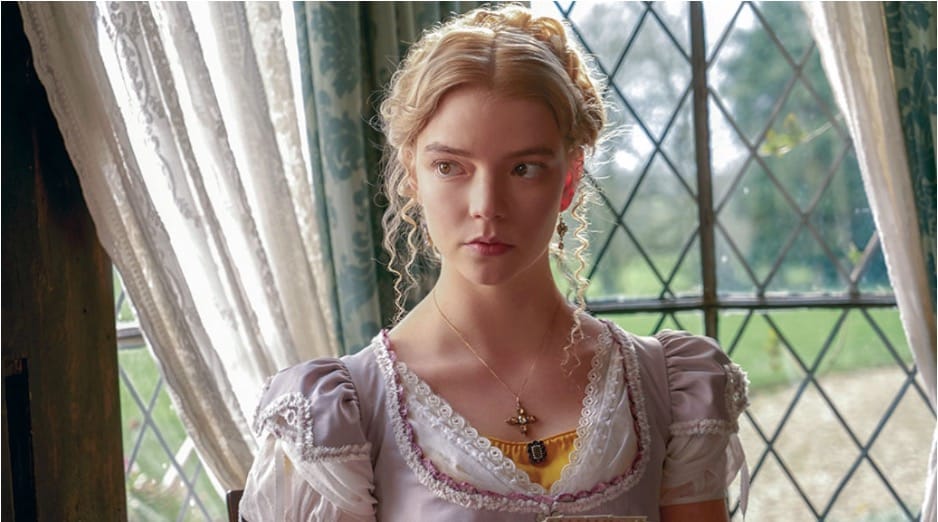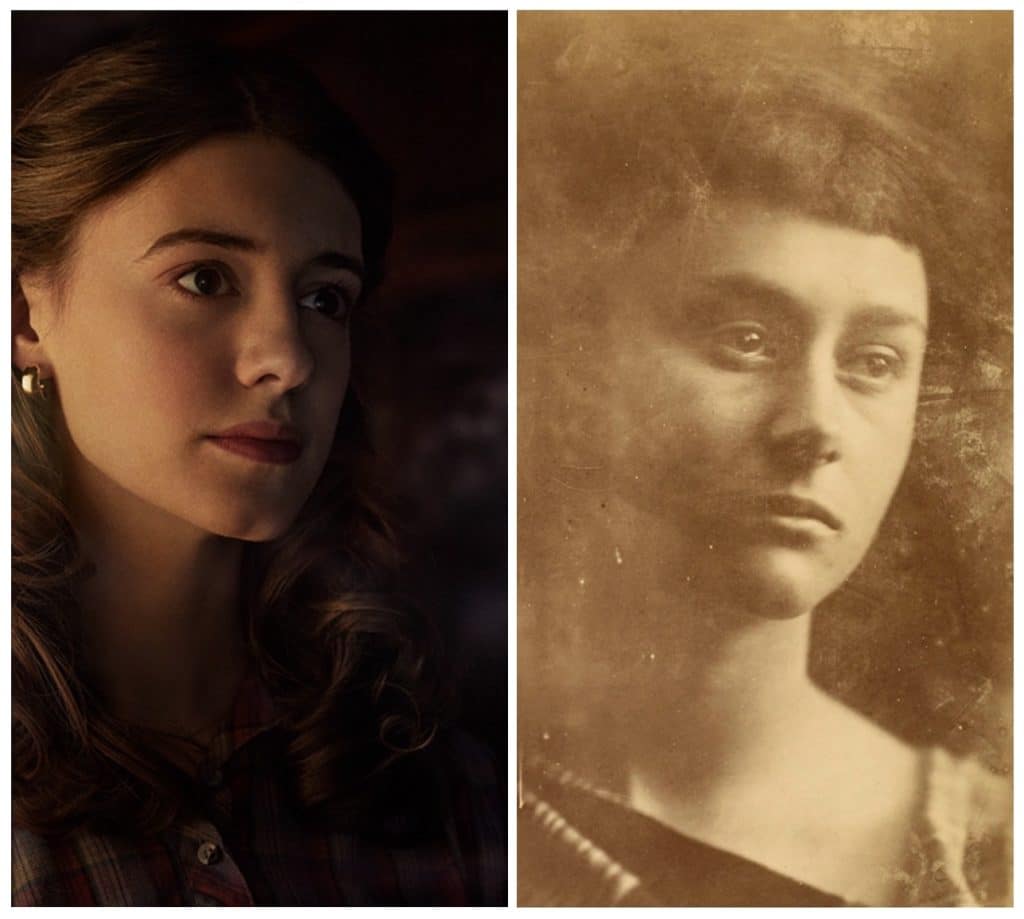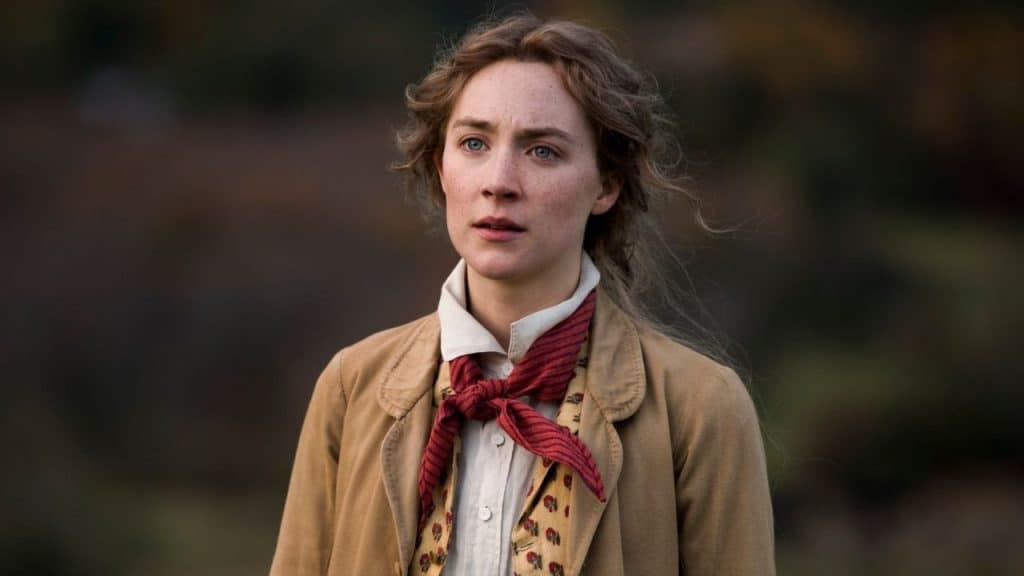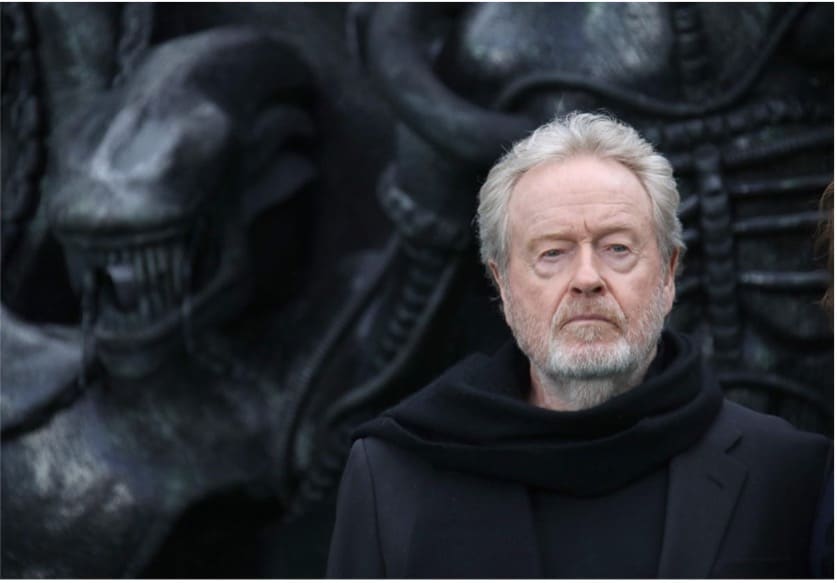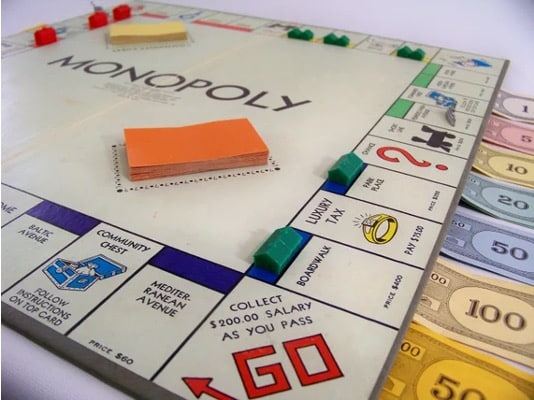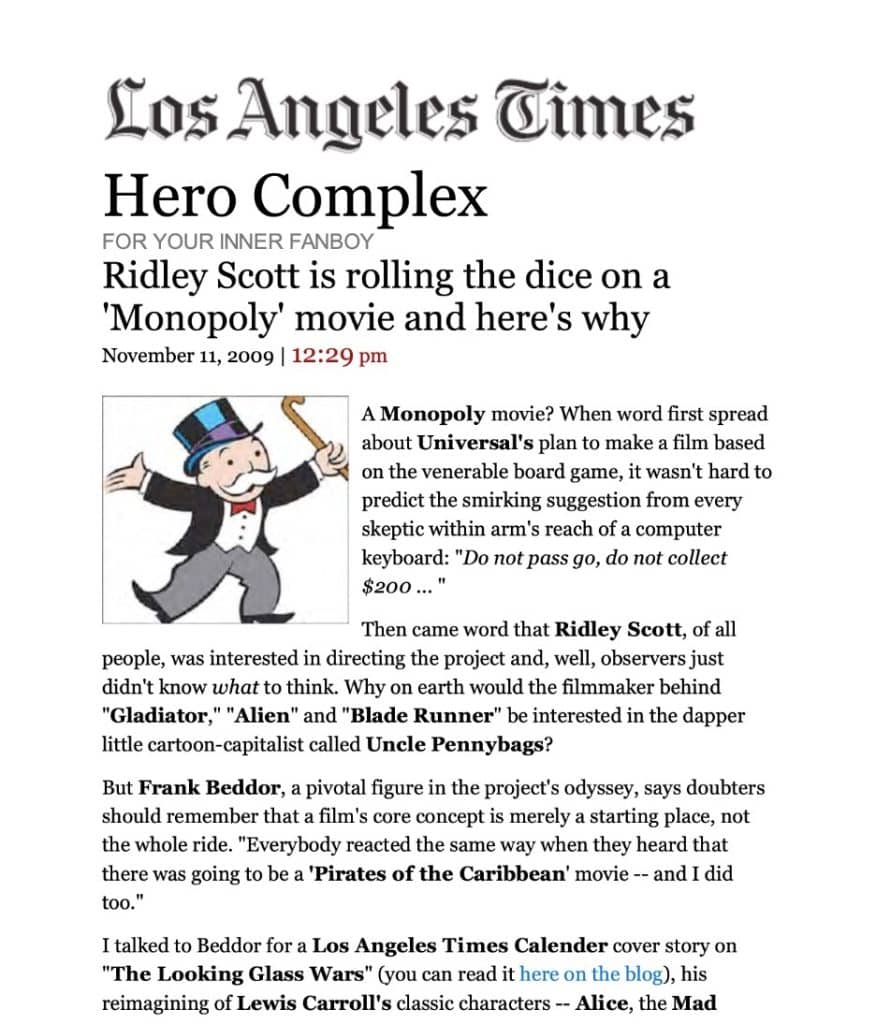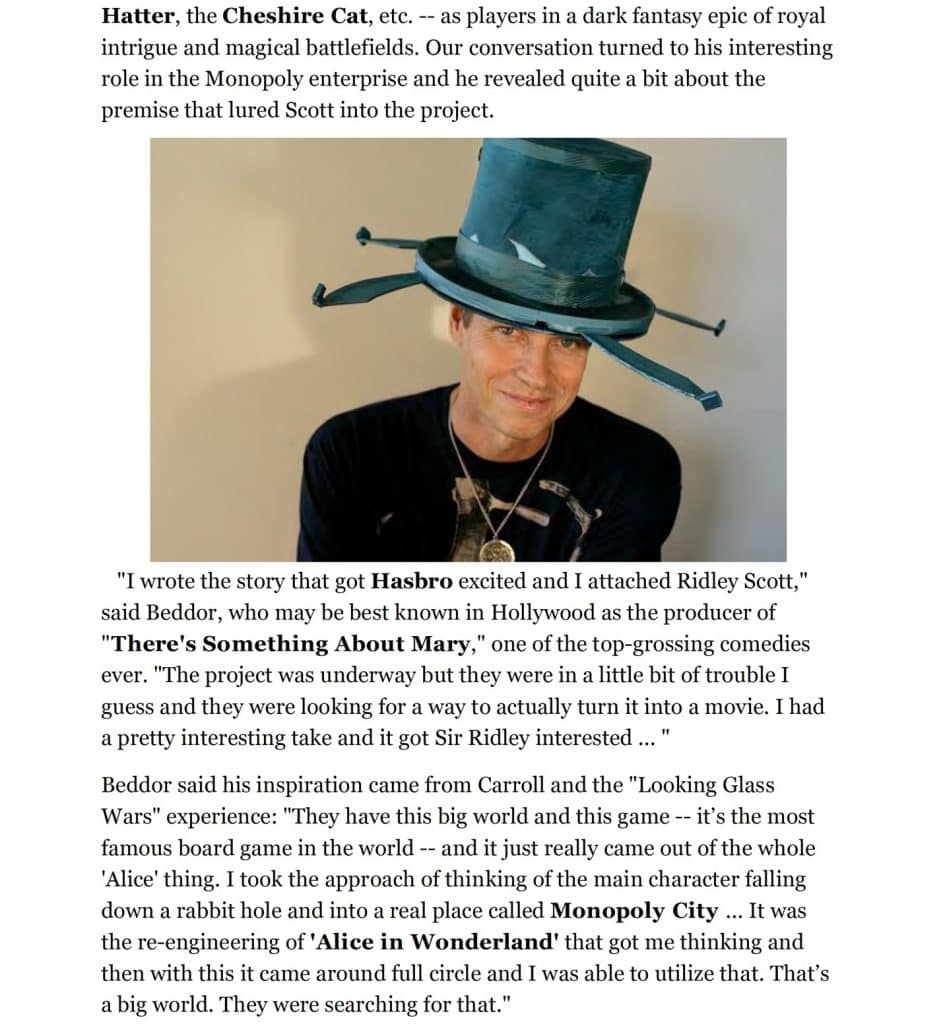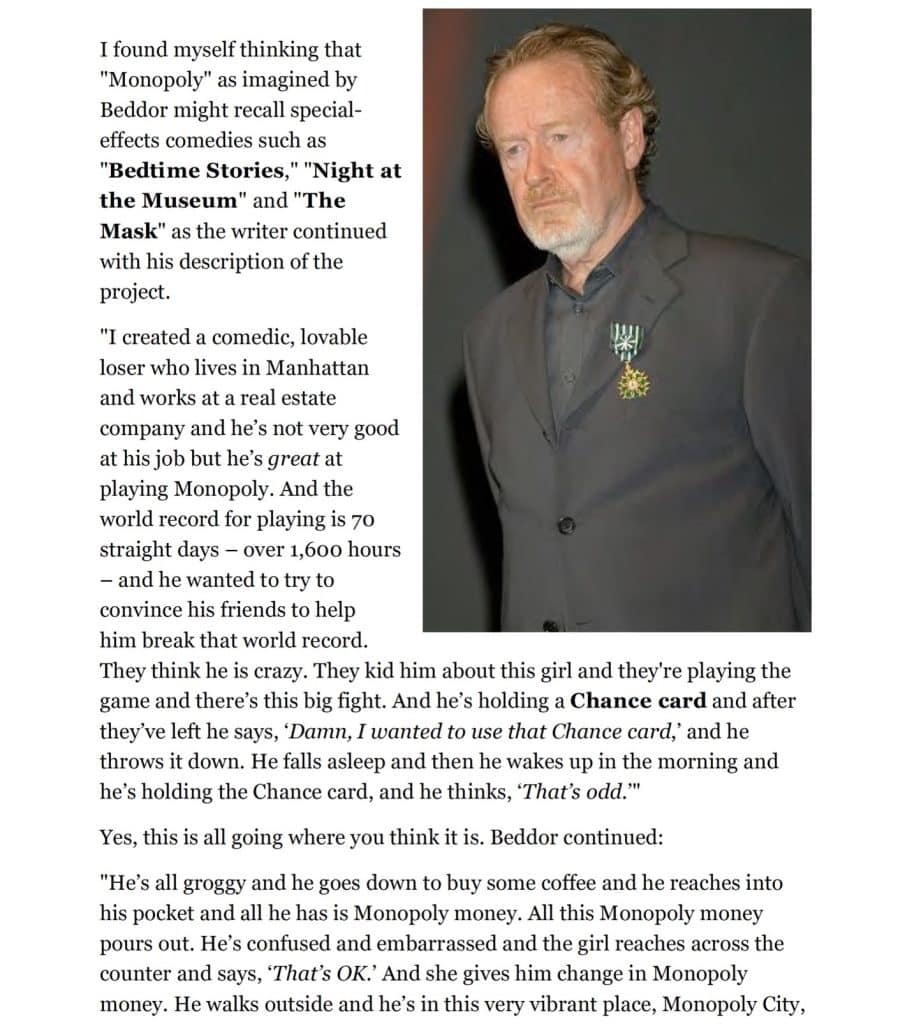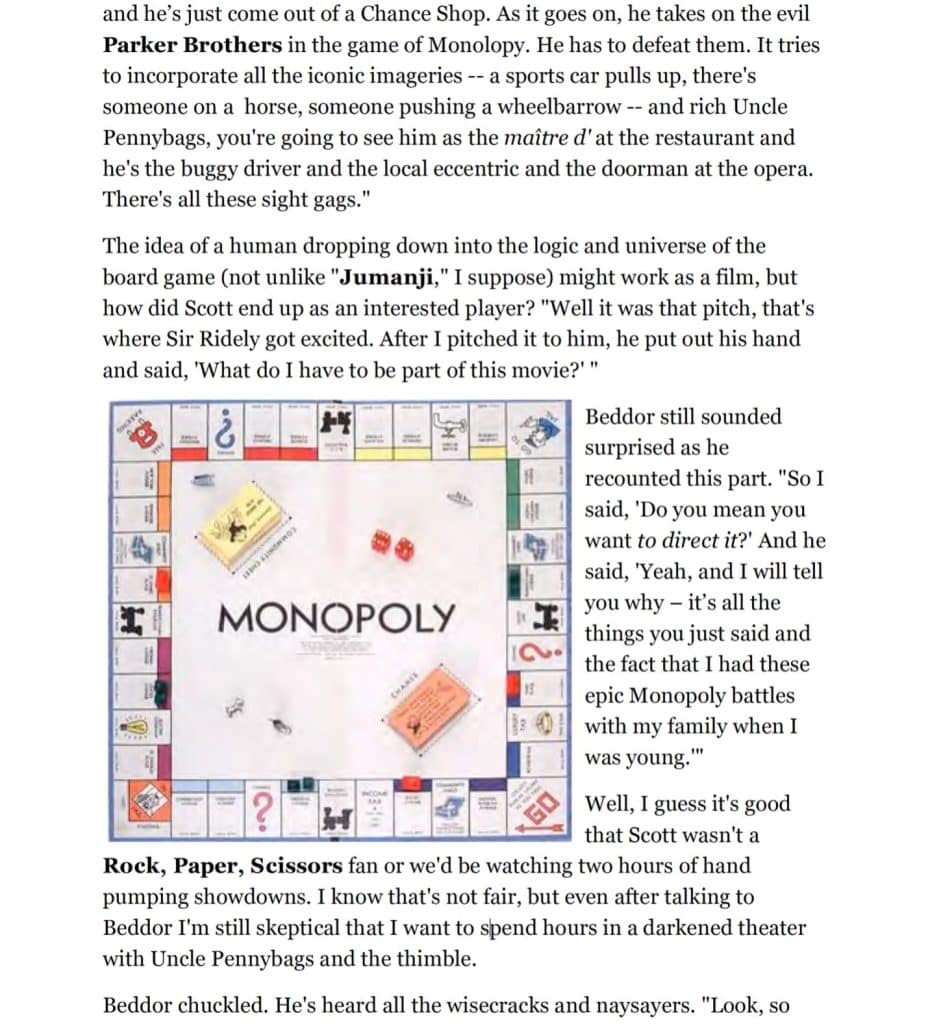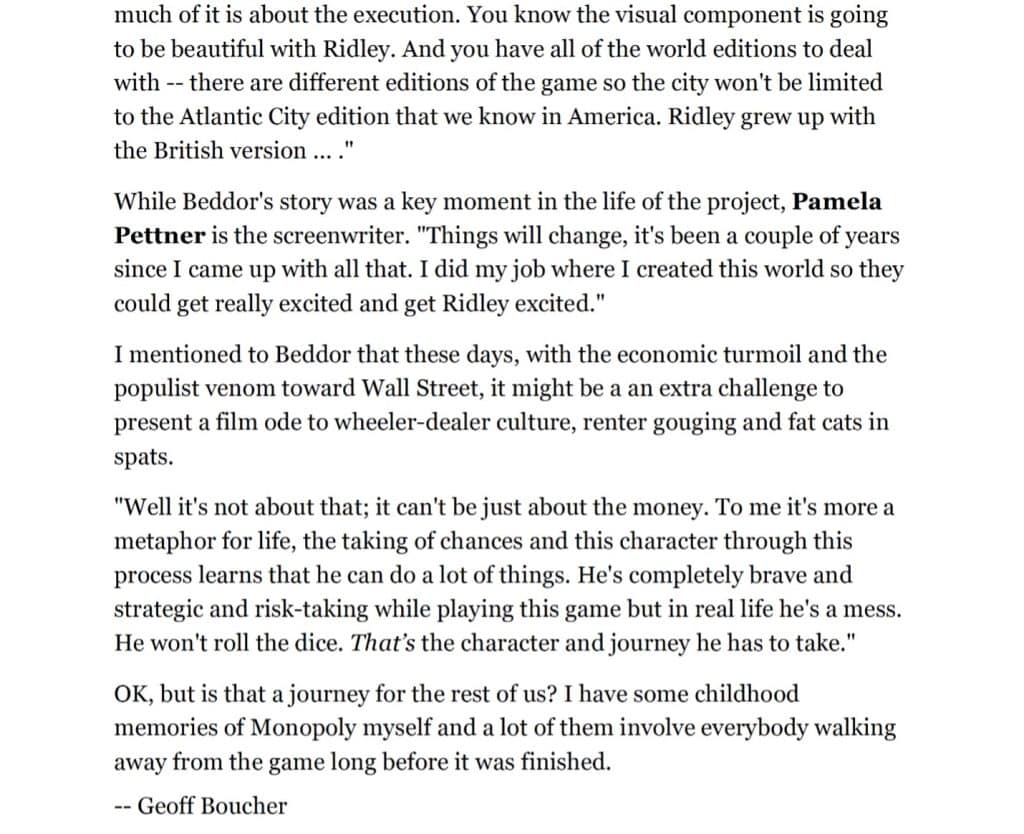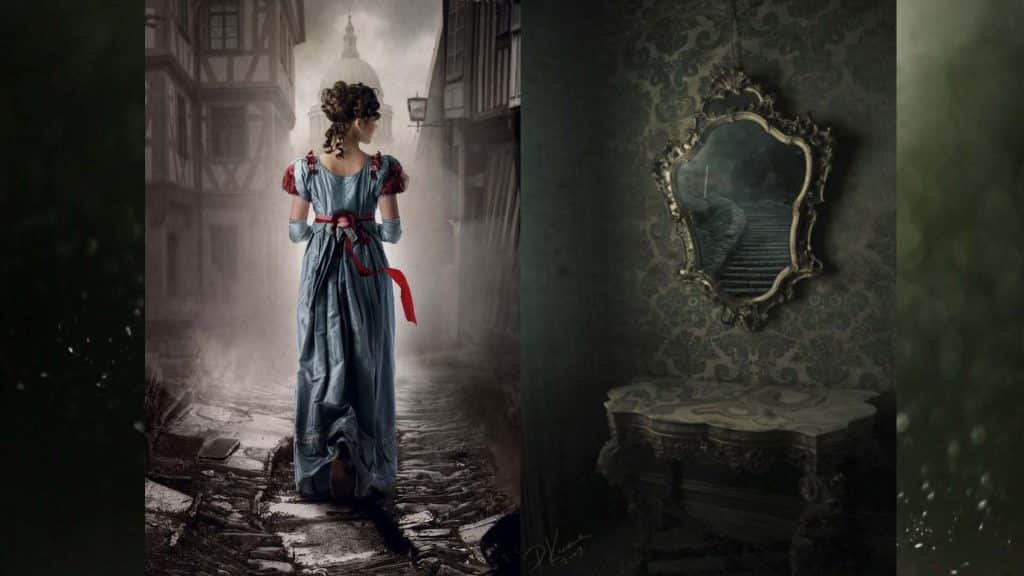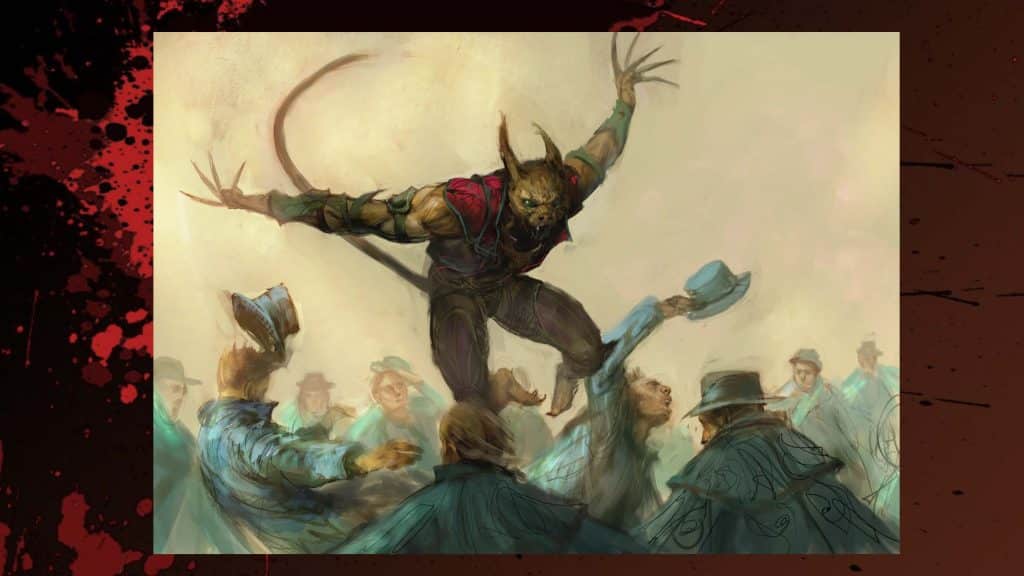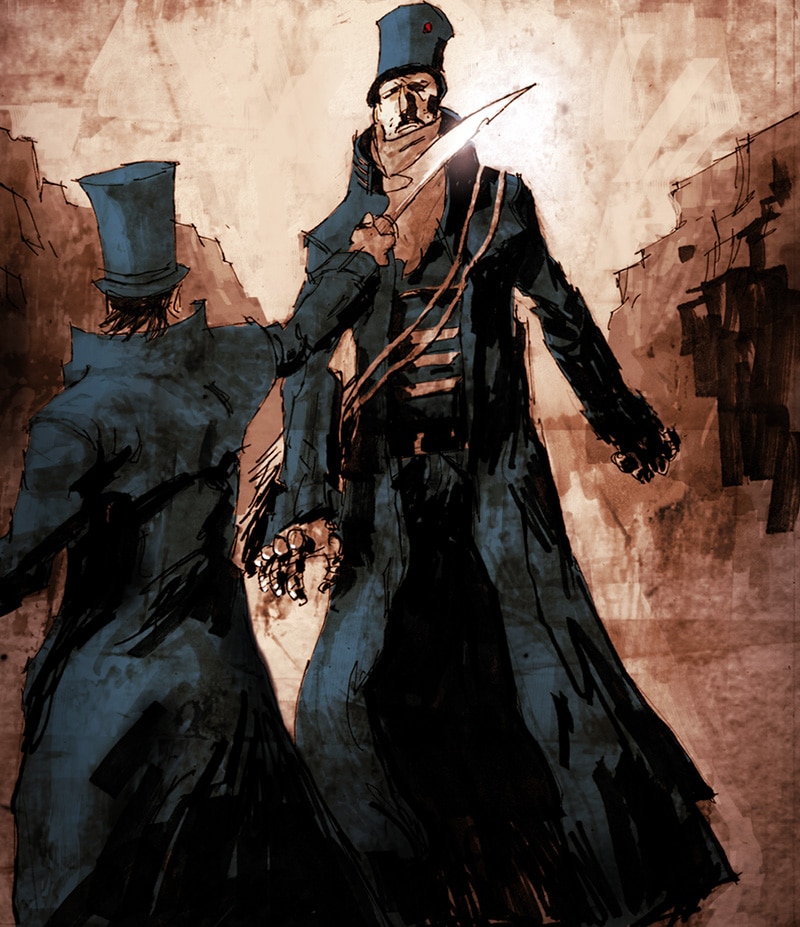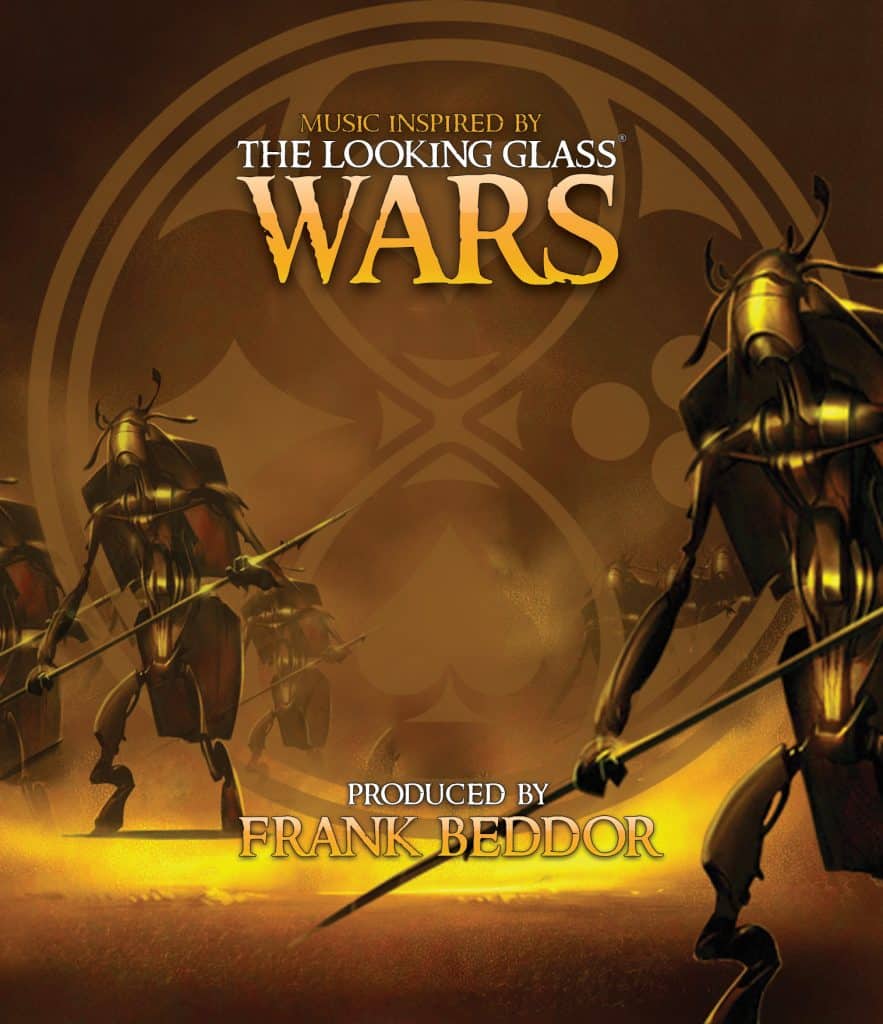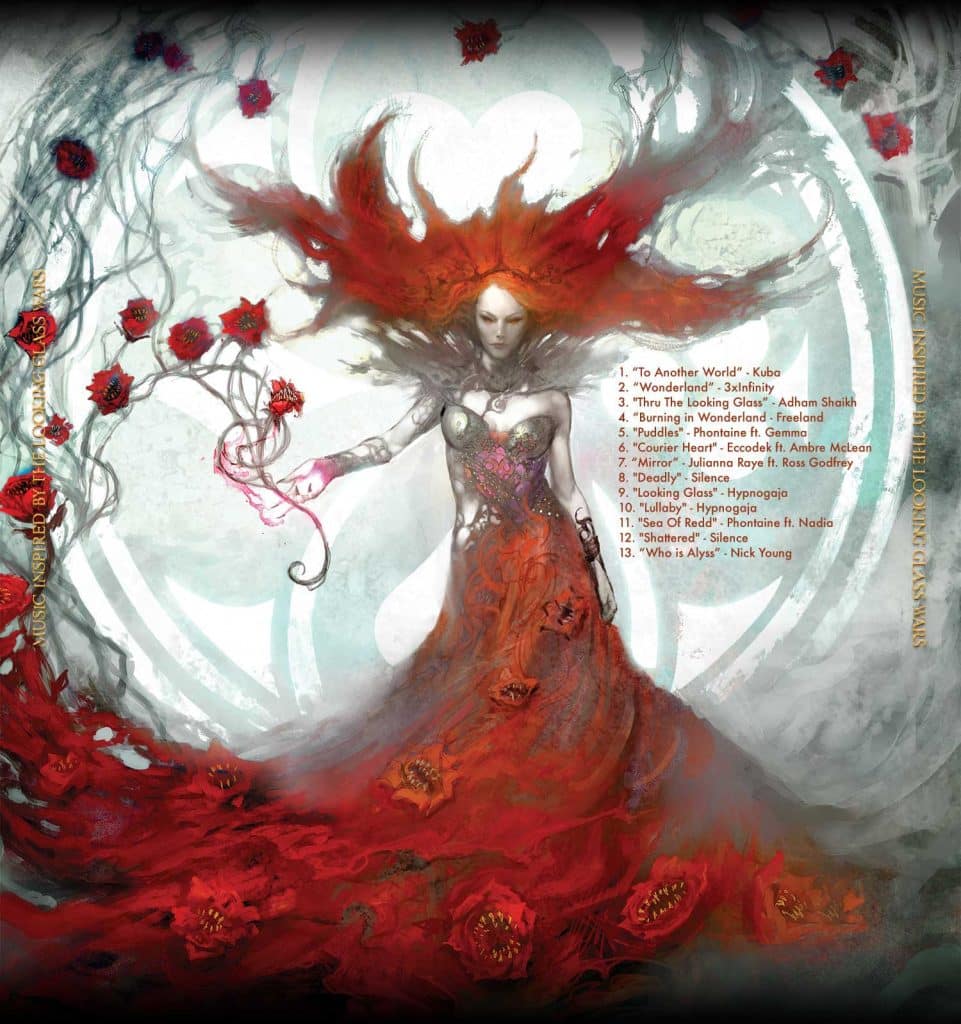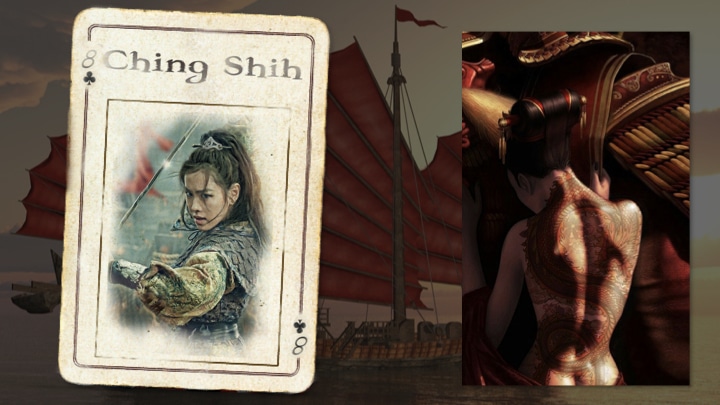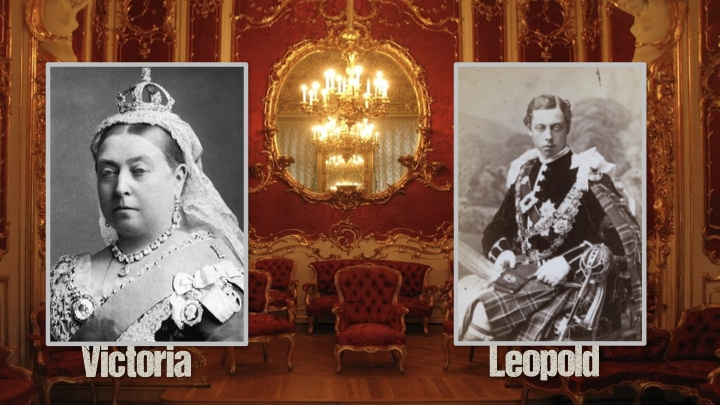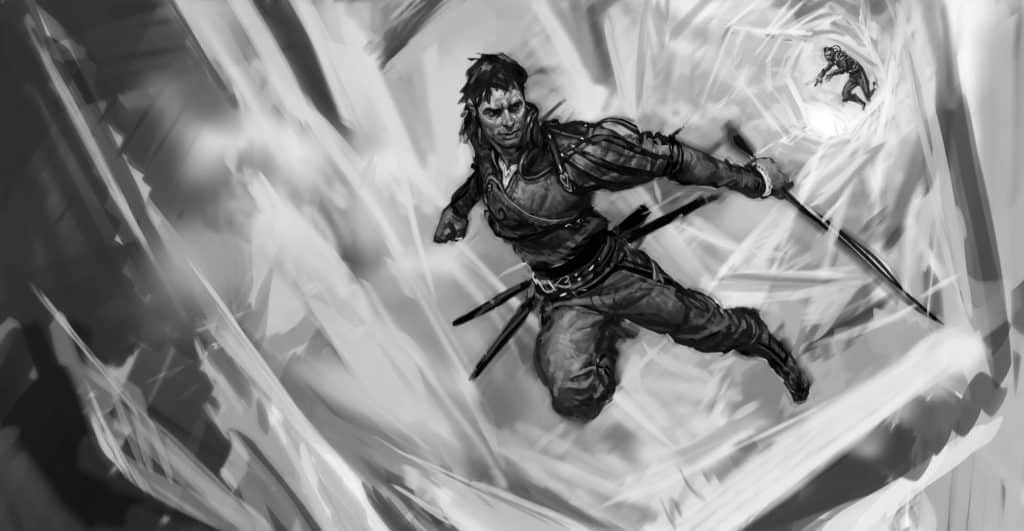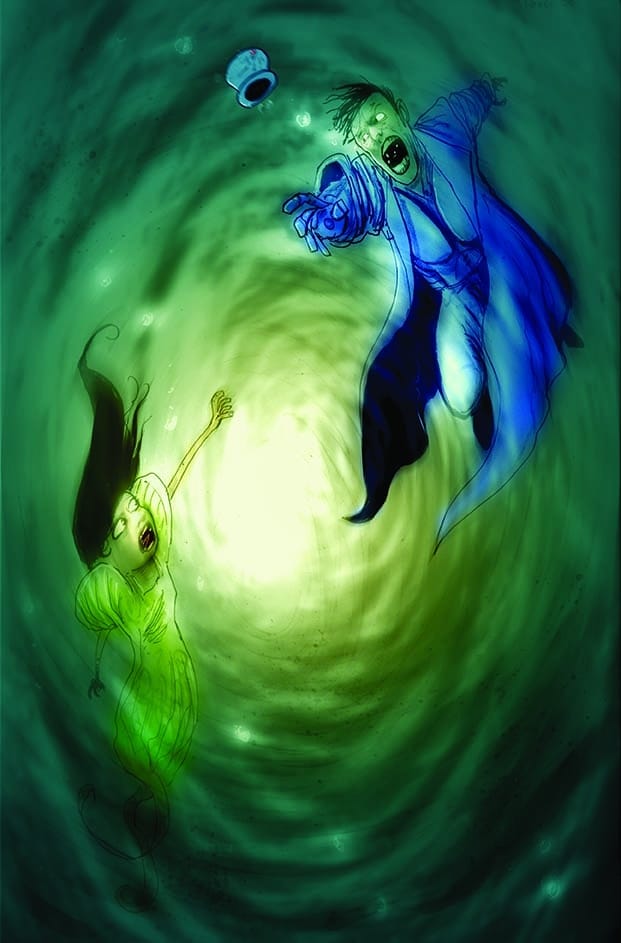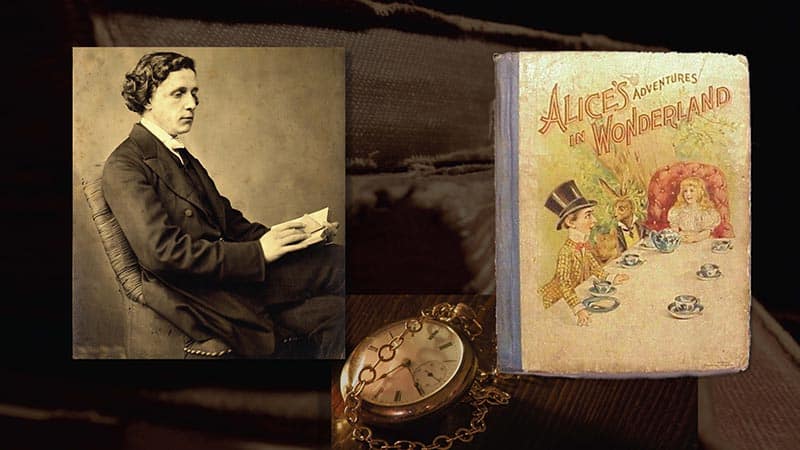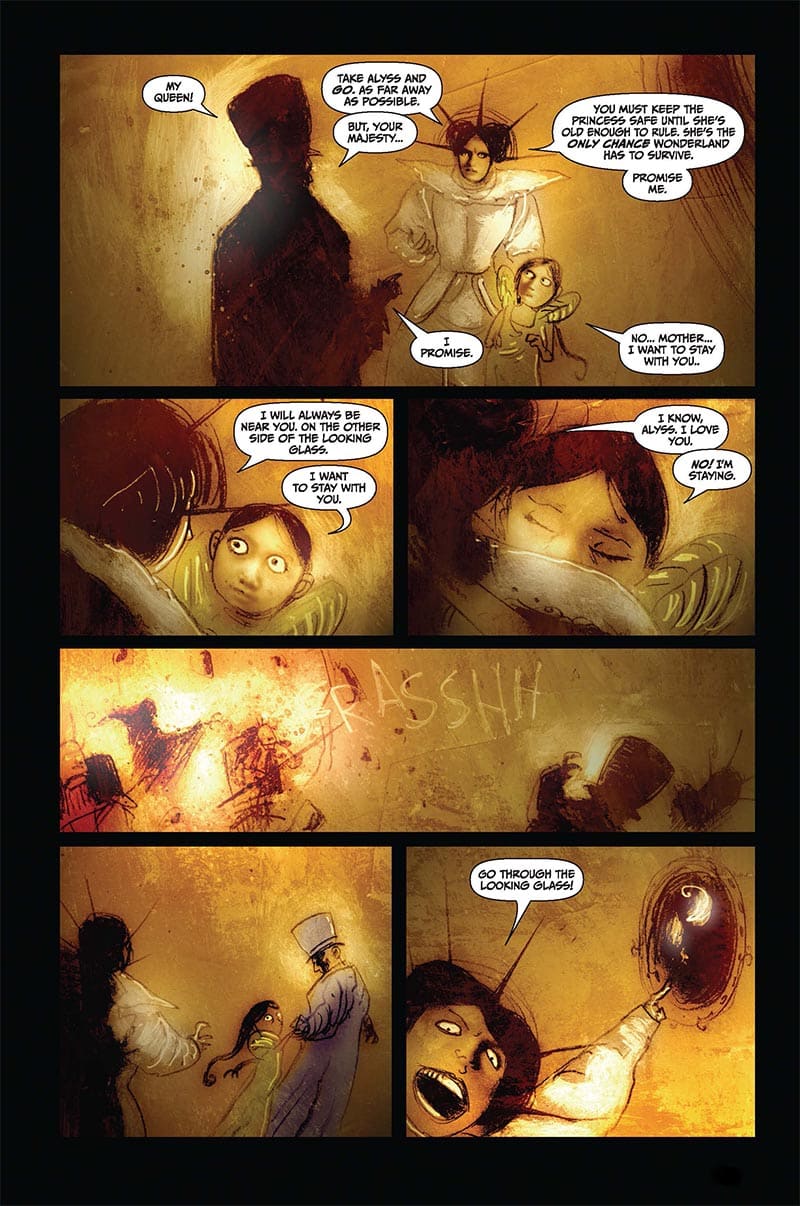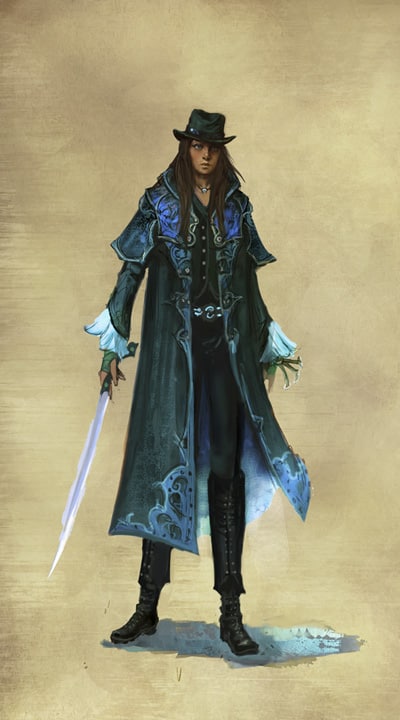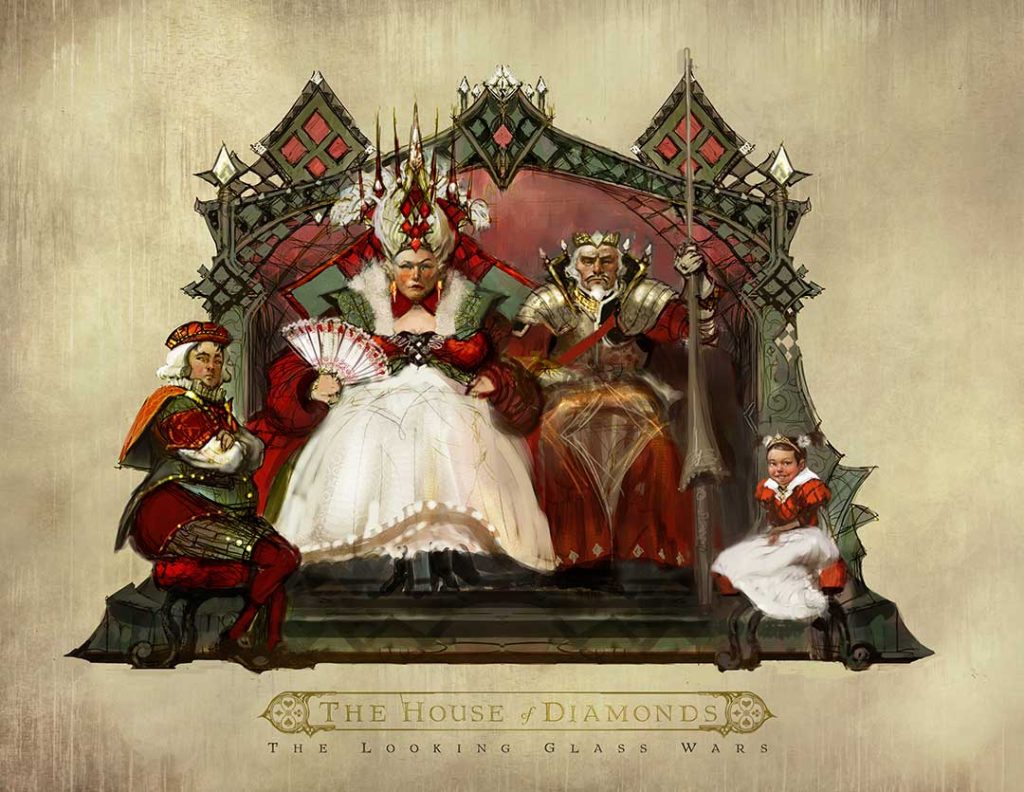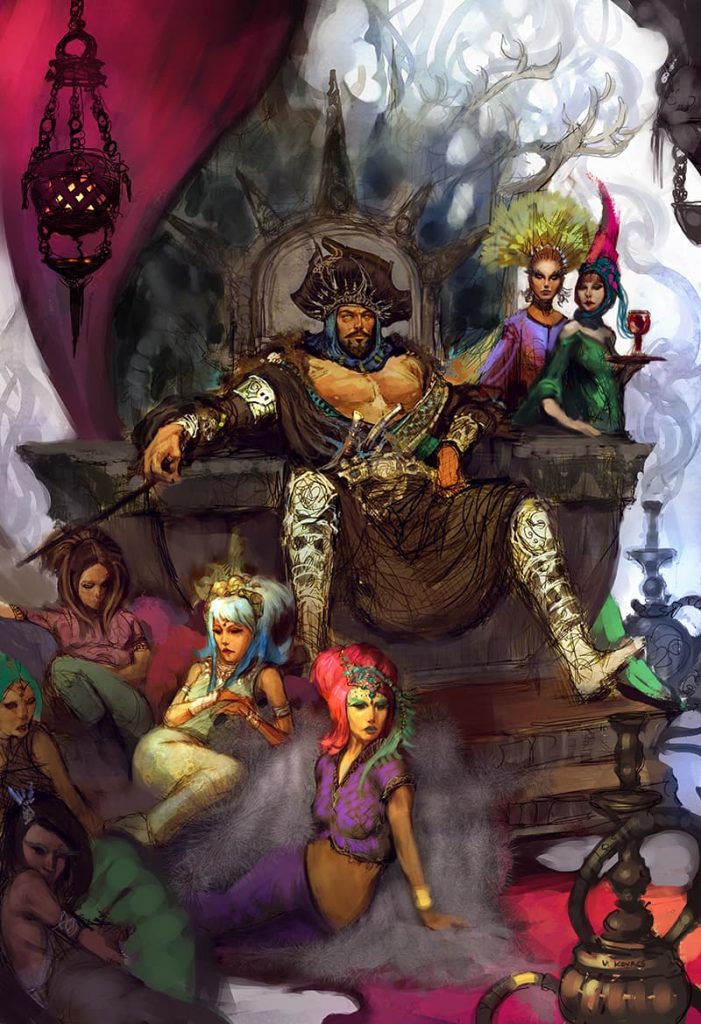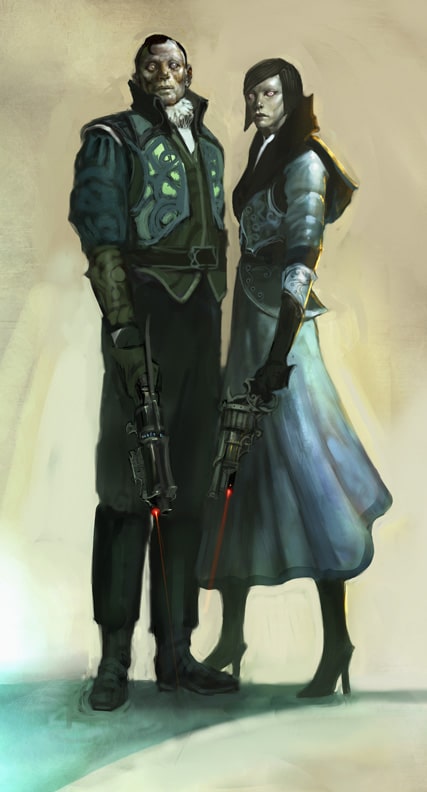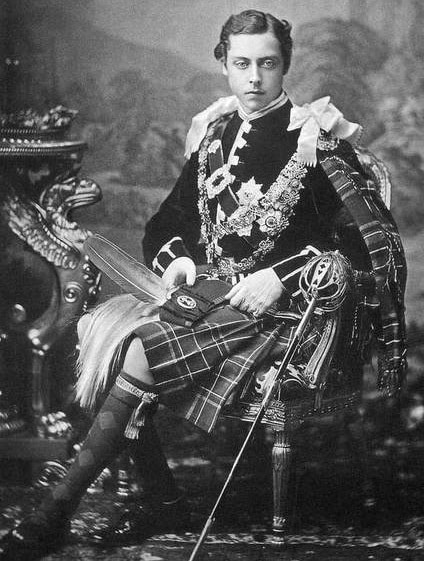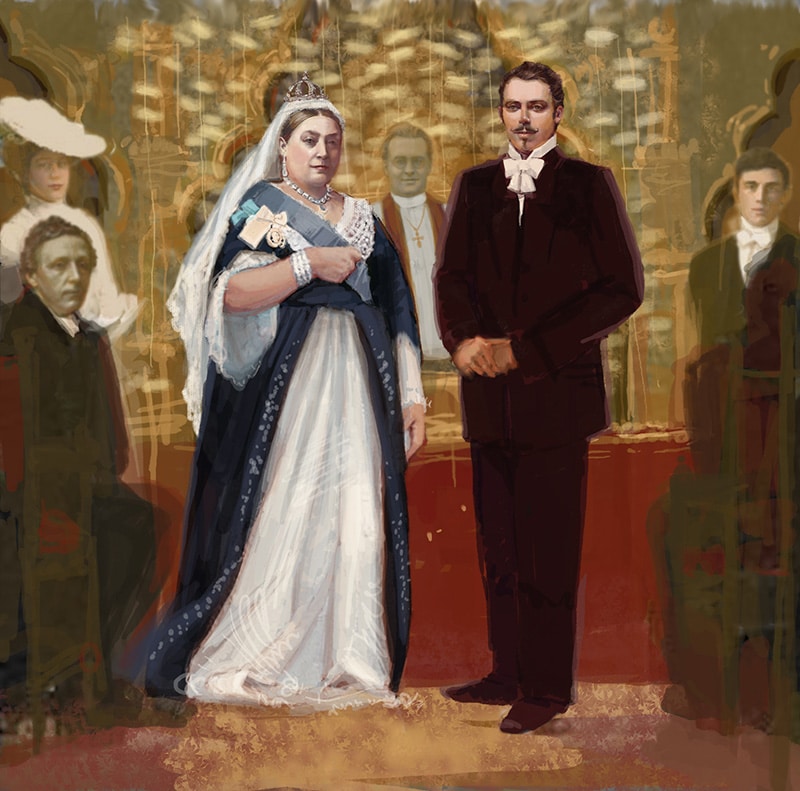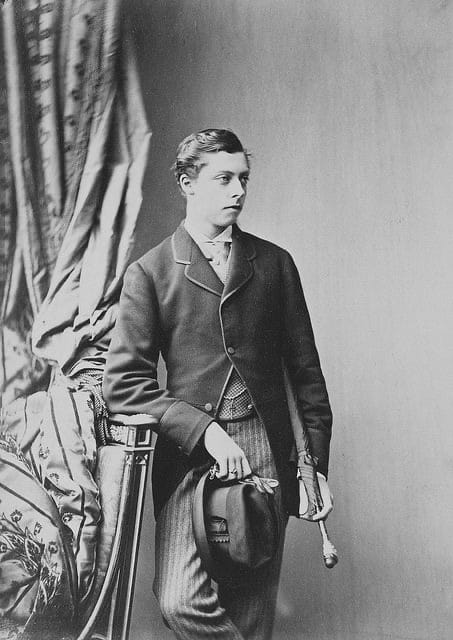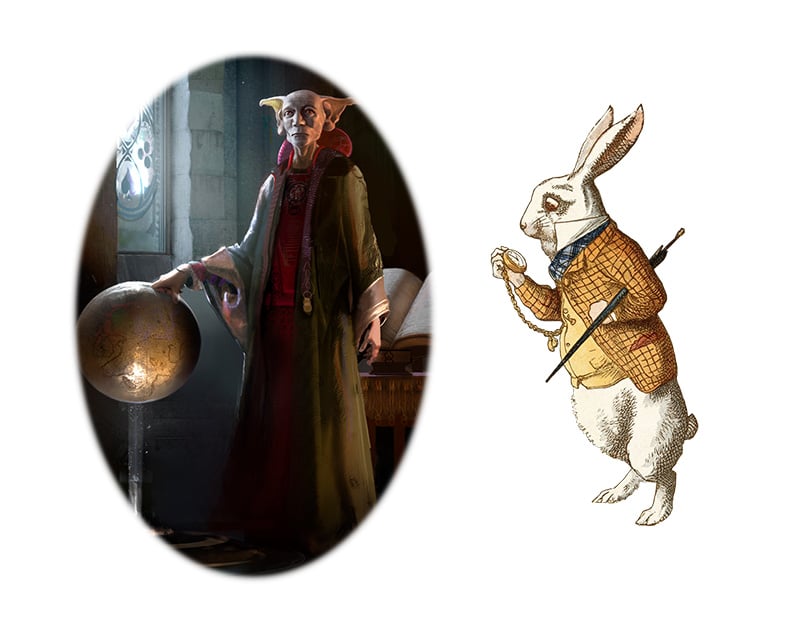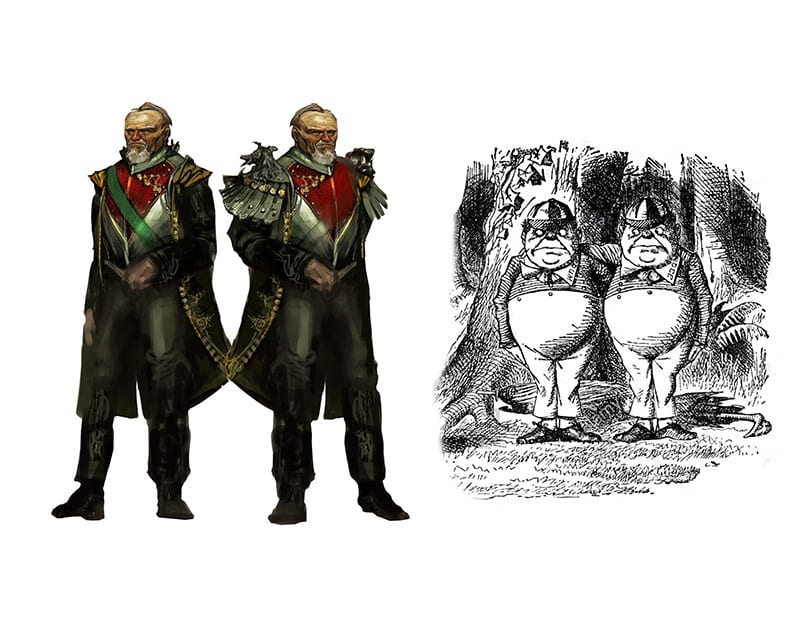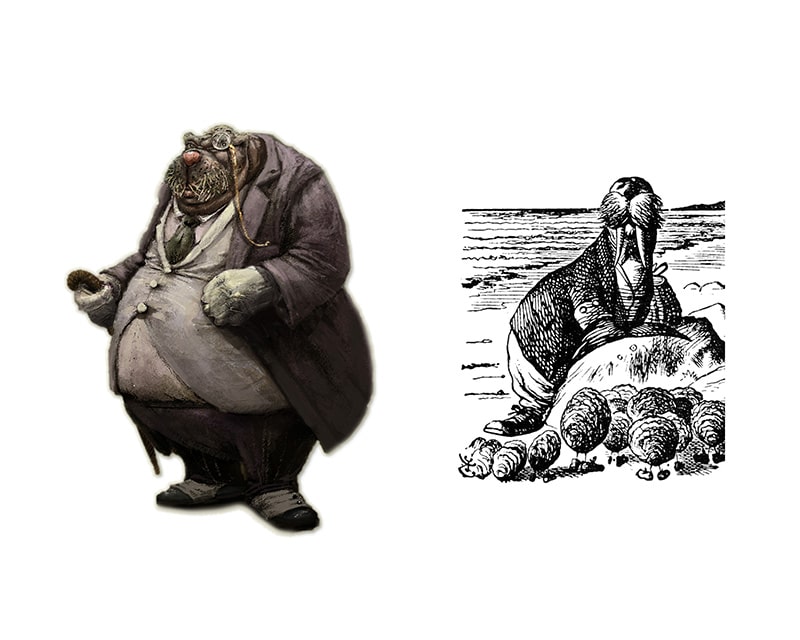An Alice in Wonderland Adaptation Could Include These Actors
As was established in my previous blog post, where I discussed hypothetical castings for Princess Alyss Heart/Alice Liddell, The Looking Glass Wars by Frank Beddor is the book that needs a television adaptation. With its fantastically large, magical, world, action-packed and emotional storyline, and the inventive re-imagination of characters we all know and love. It’s the perfect book for a hit show. The character I will be hypothetically casting today is the hat-throwing, acrobatic, globe trotter, Hatter Madigan, Frank Beddor’s version of the Mad Hatter.
This isn’t the Hatter of old though, no. There are no tea parties or mercury poisoning involved with Madigan. Hatter Madigan is a high-ranking member of the Wonderland Military called the Millinery. Hatter is a masterful fighter, his acrobatic fighting style incorporates his blade-rimmed hat and a backpack filled with a seemingly endless amount of knives. Very few have taken him on and lived to tell the tale.
While he is a talented fighter, he also has a softer side, during the coup of Queen Redd, when Ayss’s parents are murdered, he is tasked with protecting Princess Alyss. Unfortunately, during their escape from Wonderland, he loses Princess Alyss in the Pool of Tears. After Losing Alyss, Hatter tirelessly walks the globe for thirteen years, exhausting even the most minuscule of leads in his obsessive search for Alyss.
Hatter takes on an almost father-type role for Princess Alyss. An orphan himself, he understands what it is like to grow up without your birth parents. If I may be so blunt, Hatter is a morally grey badass. In regards to his actions, at first glance, you may not think that the ends justify the means but he is only supposed to follow one rule, protect Princess Alyss, by any means necessary. And when I say any, I mean it.
Hatter Madigan is a complex and powerful role. The correct casting for him is crucial not only for his character but for the overarching story. While I’m no director myself, I mentioned in my last article that I had worked in casting, so if you’ll allow me, I’m going to dawn my “Scorsese hat” and dive into the list.
Tom Hardy

Tom Hardy has a truly incredible catalog of films and TV under his belt, The Dark Knight Rises, Mad Max Fury Road, Peaky Blinders, The Revenant, Inception, Dunkirk, Black Hawk Down, Locke, Tinker Tailor Soldier Spy, etc. He effectively portrays morally complex characters aided by his seemingly gruff exterior.
Behind the gruff exterior in his roles, he masterfully brings out a softer side to the characters he embodies. Along with this, he can perform many stunts as shown in Mad Max Fury Road so the acrobatic fighting style of the Hatter would be a cakewalk for him. Tom Hardy would be a fantastic actor to portray Hatter.
Jason Momoa

The Game Of Thrones star, Jason Momoa, would be an amazing Hatter. With his imposing figure and strong frame, it would not be a far stretch of the imagination for him to be a bodyguard. While he may seem intimidating, the reason I truly believe Jason Momoa would be a fantastic Hatter is due to the fact that he brings a certain sweetness to his roles that would fit Hatter perfectly.
Princess Alyss not only has to be physically protected by Hatter, she also has to be emotionally protected, which Jason has shown in his past performances he is more than capable of doing.
Idris Elba
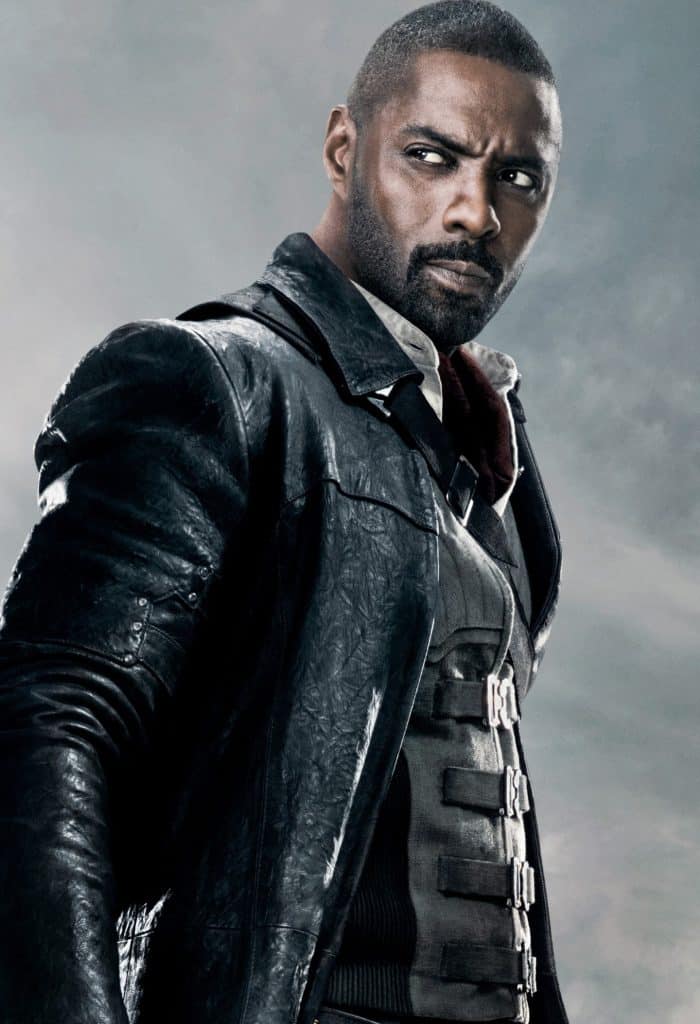
Idris Elba is a man so suave that he was being considered to be the next James Bond. Unfortunately for him, yet fortunate for us, that did not happen. Idris Elba is an insanely talented actor, established from his performance in the hit show, The Wire.
In Hijack, Idris plays Sam Nelson, a corporate negotiator who must use his skills to save everyone on board the hijacked Flight KA29. In this role, Idris brings an exciting resourcefulness as well as a calm demeanor during stressful situations that would translate perfectly to mysterious and competent Hatter. He’s definitely got the chops for the role and would bring so much mystery and intrigue to Hatter.
Henry Cavill
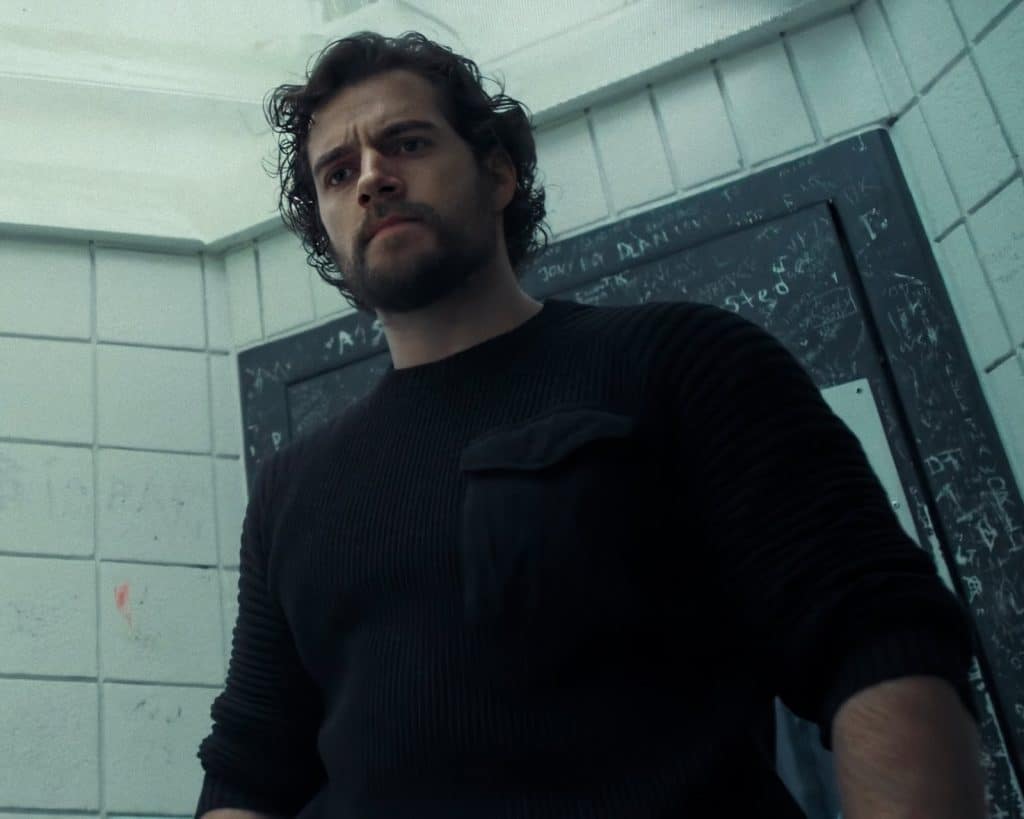
Henry Cavill is no stranger to big flashy films and television. From Superman to The Witcher, Henry is a force to be reckoned with. His imposing frame alone would fit well for the powerful bodyguard that is Hatter. What’s more, though he is strong and handsome, he is a massive nerd. He openly talks about his hobbies such as World of Warcraft and Warhammer, which means he understands what it means to fans when something they love gets an adaptation and would give his performance his all to get it right.
In The Witcher, he played Geralt. Geralt is a man who doesn’t really belong in the world he lives in, just like Hatter as he travels the globe searching for Princess Alyss. Cavill will bring power as well as sorrow to the role that makes him a strong contender to be the Hatter.
Ewan McGregor

Obi Wa- Sorry, Ewan McGregor, is a powerhouse. He is instantly recognizable and would bring so much fun and mystery to the calculated and deadly Hatter Madigan. Let's start with the obvious, to me and anyone in my generation, he is Obi-Wan Kenobi. In Star Wars, Episode One: The Phantom Menace, Obi-Wan is a powerful Jedi tasked with protecting young Anakin Skywalker. This would translate over perfectly to the Looking Glass Wars. It’s no stretch of the imagination to say he would convincingly portray a powerful soldier turned bodyguard who is tasked with protecting, then finding, Princess Alyss.
Playing a Jedi also means that he is no stranger to wild stunts and fighting with a “blade” just like he would need to do as Hatter. He fits every necessary part of the Hatter perfectly, I’ve established that he can convey convincing staged fights but he also showed us that he can be a tender and loving caretaker as he did with young Princess Leia in the new Obi-Wan Kenobi show. I can say with no hesitation that Ewan McGregor would make a great Hatter Madigan.
Javier Bardem

Javier Bardem might feel a bit like an odd man out on this list at first glance, but give me a couple hundred words and I know I can change your mind. All we have to do is look at his performance in No Country for Old Men. Okay, wait, don’t leave, hear me out. Javier’s character, Chigurh in No Country for Old Men is a psychopathic assassin who leaves a wake of dead bodies behind him in his hunt for Josh Brolin.
This on the surface may not seem like the right thing for Hatter Madigan but allow me to remind you of when Princess Alyss is separated from Hatter during their escape from Wonderland and ends up in our world, what does Hatter do? He walks the globe, using every bit of his training from the Millinery to find clues to lead him to the one he was supposed to protect. Remove Chigurh’s psychopathy, the make wake of dead bodies justified killings, and change the end goal from killing Josh Brolin to protecting Alyss, and boom, Hatter.
The laser-like focus, the strong silent type energy, the detective work, to put a perfect cherry on top, Hatter Madigan is a morally grey hero, he is not moralistic when protecting exploited children, he is a trained killer after all… Told you I would convince you. Javier Bardem can and will provide.
Michael Fassbender

It seems as though Michael Fassbender is no stranger to big set pieces, from the recreation of ancient Greece in 300 to the distant planet that is the setting of Prometheus. Big works for Fassbender. But, then I remembered Steve Jobs. A movie that takes place in one location over the span of many years. It is essentially a play. Yet it still feels massive. And that’s when it clicked for me, Fassbender brings the “big.” His performances have that weight. The perfect weight needed for the role of Hatter.
Hatters presence is always felt, even when he is being quiet. Fassbender has the chops to bring awareness of Hatter, without drawing attention. Striking the perfect balance of an assassin. Which Fassbender is already familiar with due to his staring in Assassin’s Creed.
James McAvoy

James McAvoy has the ability to disappear into his roles unlike any other. This skill is highlighted no better than in Split, where James portrayed a man with dissociative identity disorder. Every time his character changed personalities, you fully believed he became a new person. Even though it was the same face.
James is also no stranger to the fantasy world, portraying Mr. Tumnus in The Lion, The Witch and the Wardrobe. With his rugged looks and previously mentioned top tier acting chops, he truly has all the raw ingredients to become a perfect Hatter. The only missing ingredient here is him. James, are you reading this? Call Frank Beddor, his cellphone number is [REDACTED].
Alexander Skarsgård

A couple of months ago, my girlfriend was rewatching True Blood. Now, I had never watched this show before, as I’m not it’s target demographic. But, let me tell you, while she was watching the show and I was doing other things, any time Alexander Skarsgård came on camera, I was glued to the screen. I was surprised that a romantic drama about vampires in Louisiana had a performance so nuanced and genuinely unsettling. He (along with my girlfriend) made me watch the whole show.
As shown in The Northman, Skarsgård is no stranger to sword play, masterfully executing the choreographed fights like a true master of the blade. Without a doubt, Skarsgård would bring an incredibly interesting performance to Hatter. Plus he’s got a brother, which would be amazing if he cameo’d as Hatter’s brother, Dalton. Just throwing it out there.
Jamie Dornan

Okay, let me address the elephant in the room before I fully get into why Jamie Dornan is a great contender to be hypothetically cast as Hatter Madigan. Fifty Shades of Grey. For those of you who don’t know, Fifty Shades of Grey… How do I describe this without getting in trouble? Oh, I got it! Go ask your mother. Roasted.
Okay, but seriously, those of you who have watched the movie or at least heard of it might be wondering why he is on this list, that movie (and book) is a lot different from The Looking Glass Wars. And you’re right to think this, but all I need to say is one word to get you on my side, smolder. Those who have seen the movie get what I’m saying. There is a lot of smoldering in Fifty Shades of Grey. Especially from Christian Grey. If we were to remove the BDSM undertones (and overtones) of the smolder and replace it with anger and determination. He’d be a damn good Hatter.
I believe any one of these actors would be a terrific Hatter Madigan. What do you all think? Is there anyone you would prefer to see play Hatter Madigan? Anyone you think I’m incorrect about? I would love to hear your takes on the perfect actor to play Hatter Madigan.
Meet The Author

Jared Hoffman graduated from the American Film Institute with a degree in screenwriting. A Los Angeles native, his brand of comedy is satire stemming from the many different personalities and ego’s he has encountered throughout his life. As a lover of all things comedy, Jared is always working out new material and trying to make those around him laugh. His therapist claims this is a coping mechanism, but what does she know?
